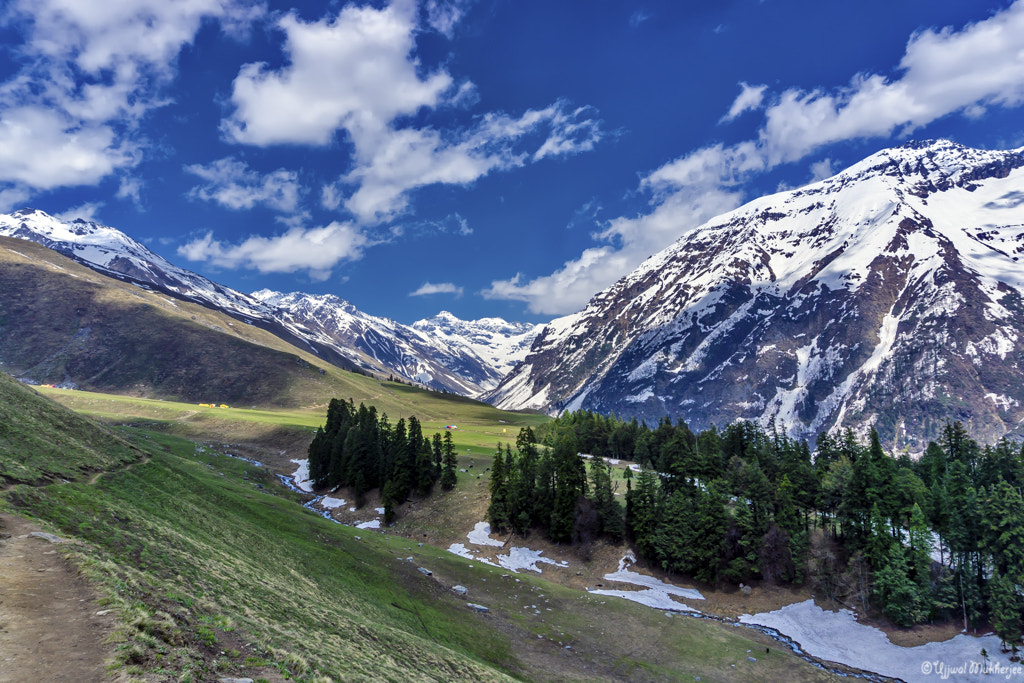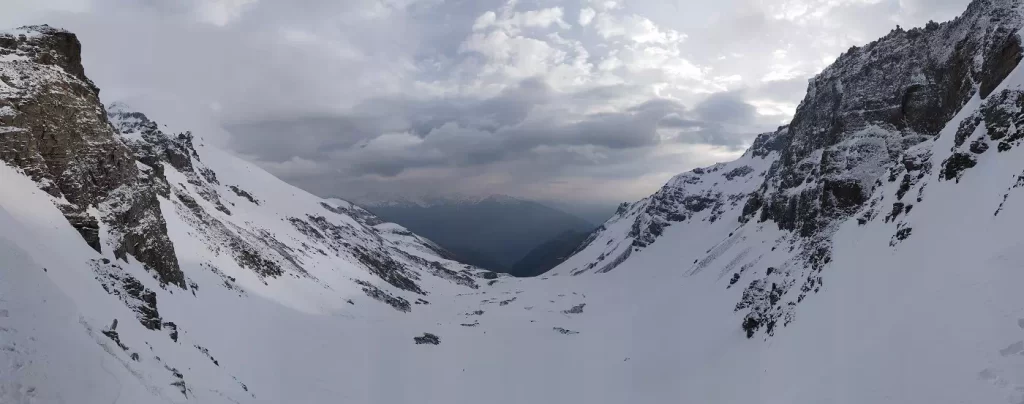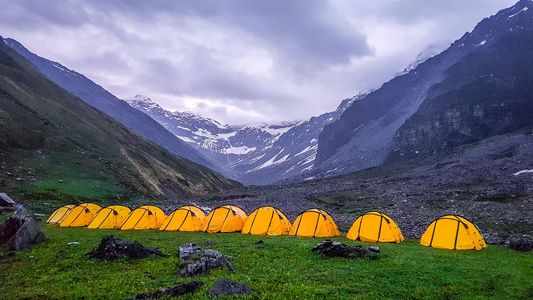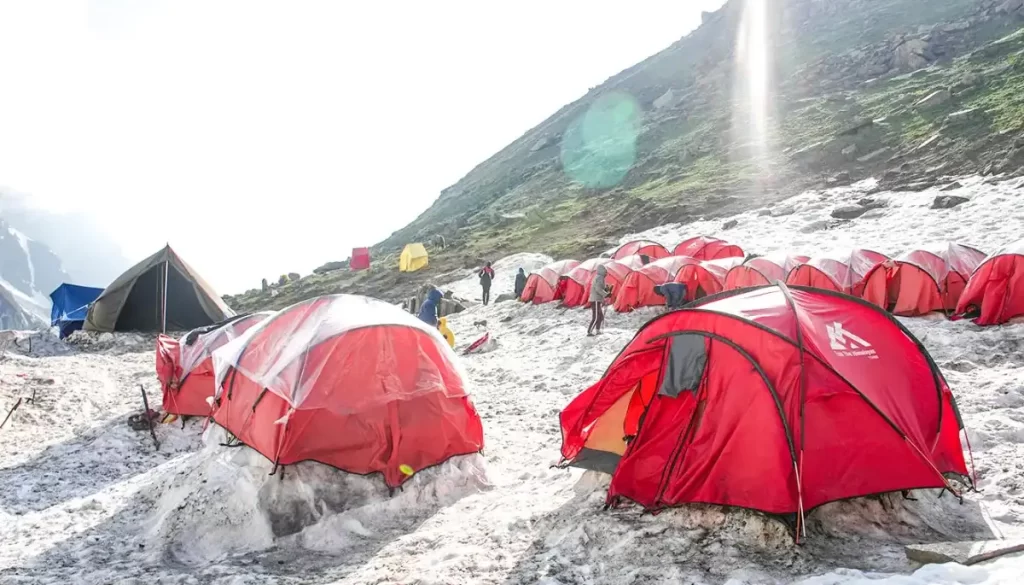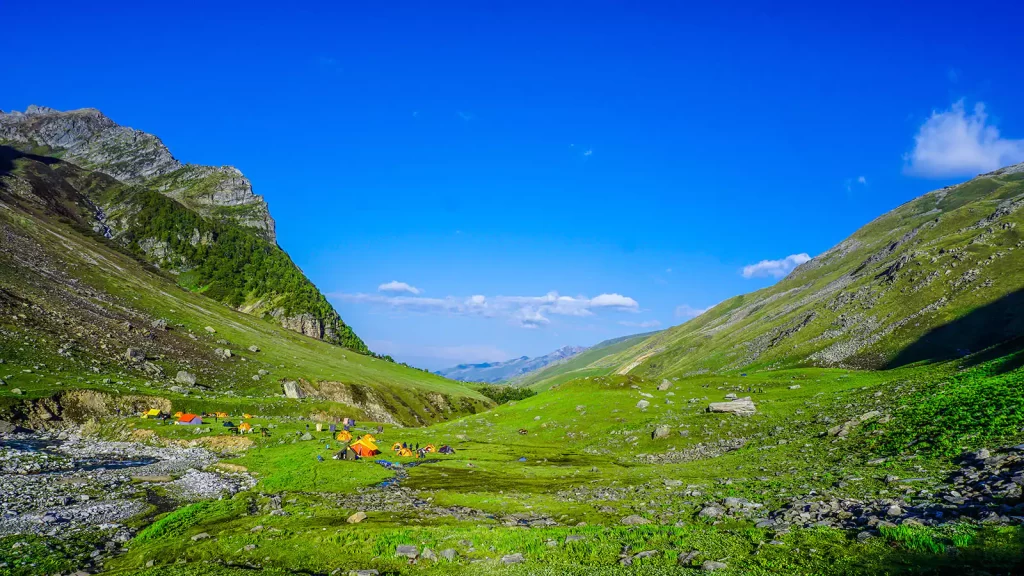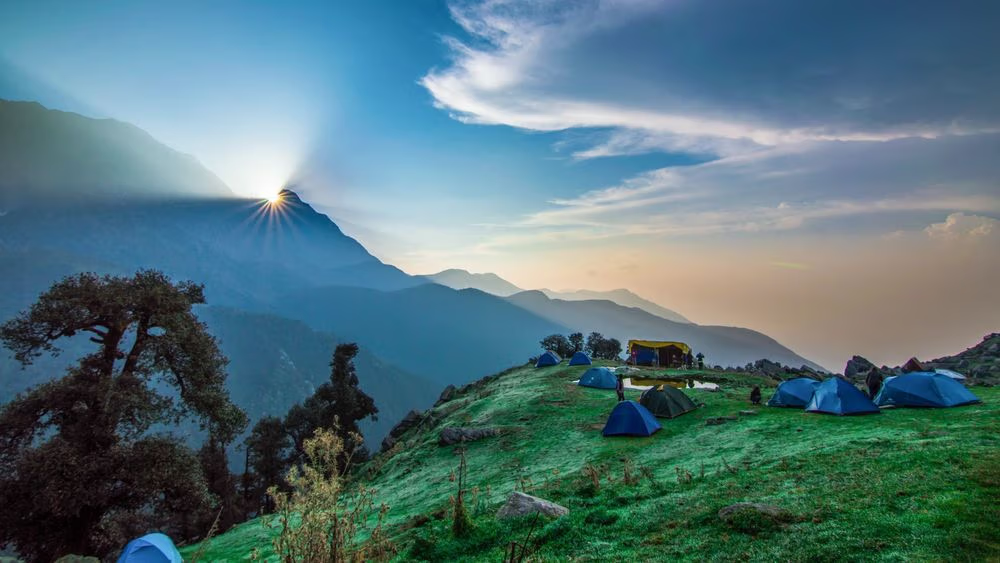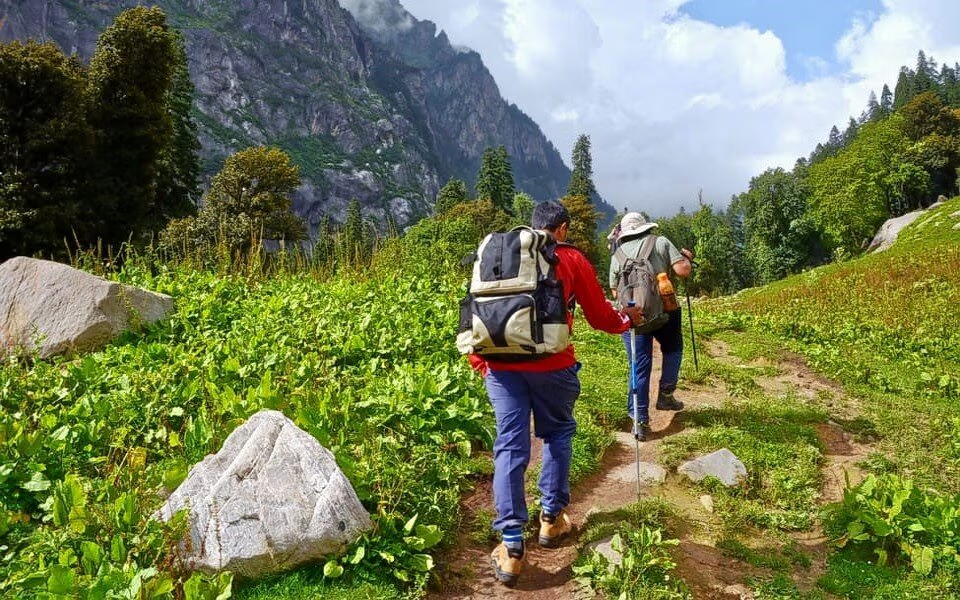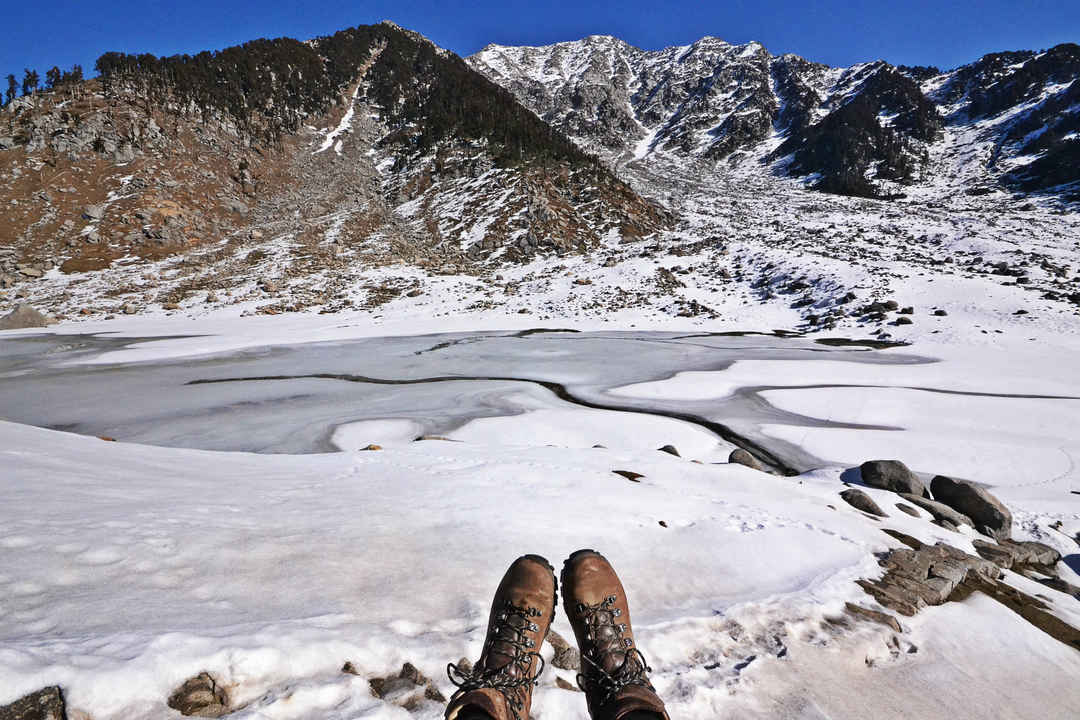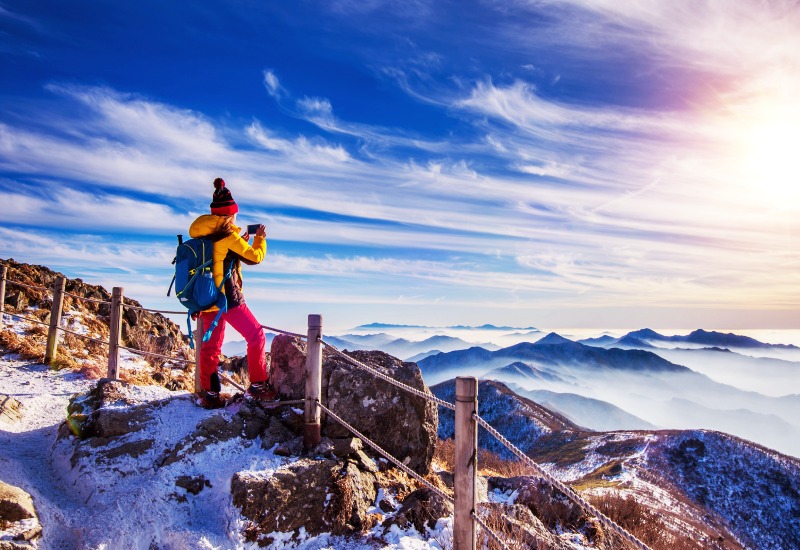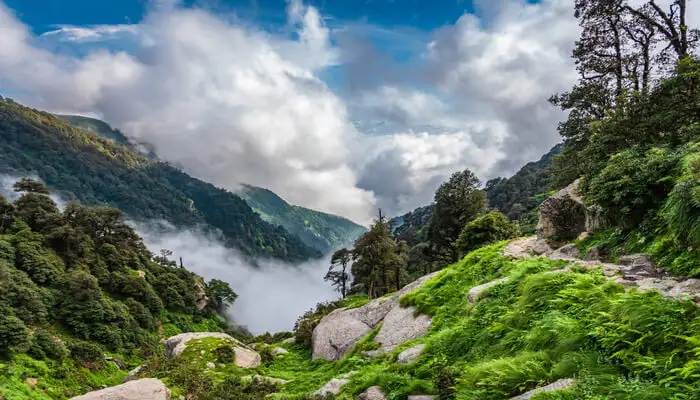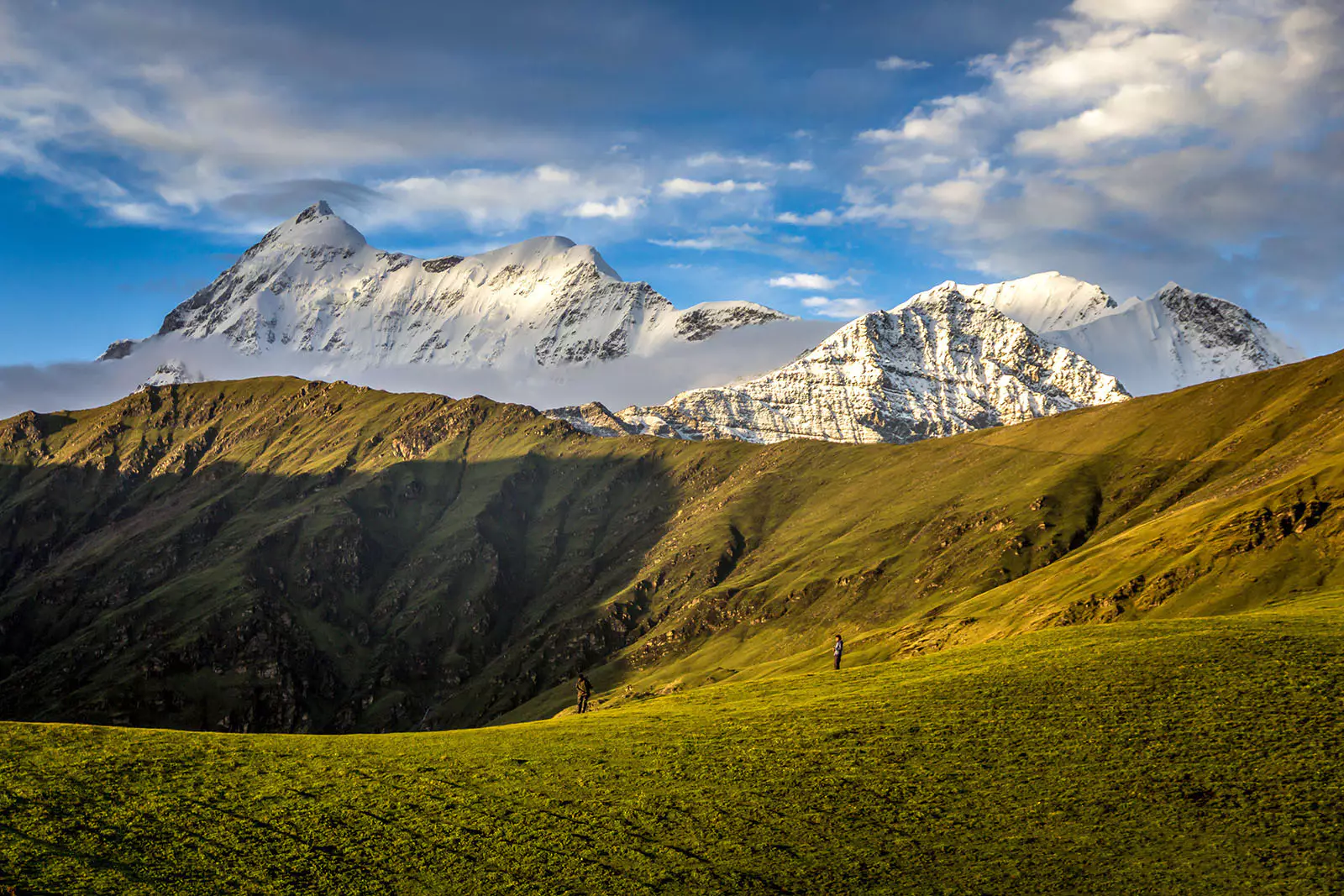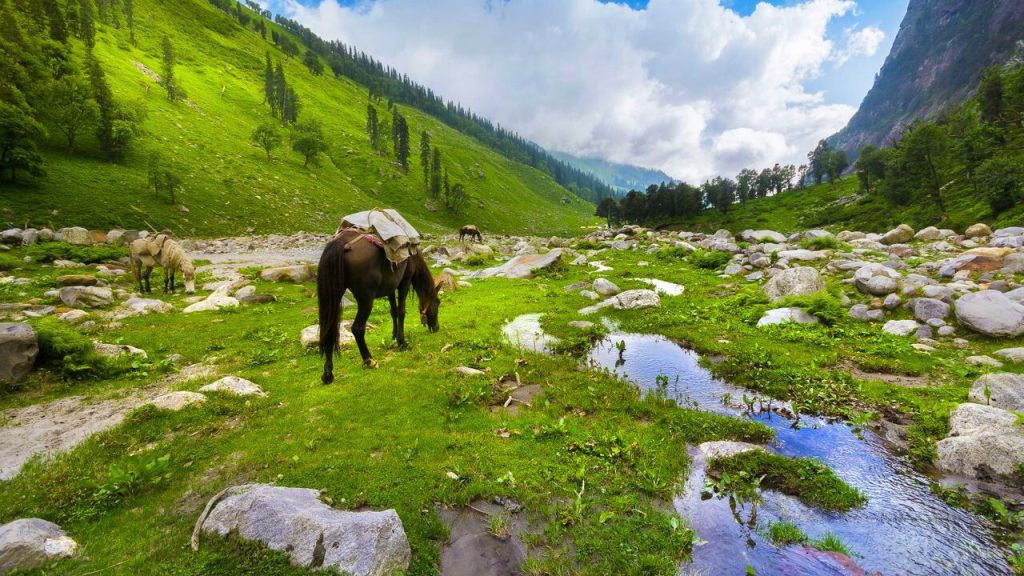Buran Ghati Trek
1. Introduction to the Buran Ghati Trek
A thrilling high-altitude trail that provides a memorable trip in the heart of the Himalayas is the Buran Ghati Trek. This trek, which is tucked away in India’s Himachal Pradesh, is a well-balanced combination of adventure, scenic beauty, and cultural immersion. It is a trekker’s dream come true because of its lush meadows, thick forests, and exhilarating snow wall descent.

The Buran Ghati Trek perfectly captures the essence of trekking, which has always been a personal means of connecting with nature. Its unspoiled scenery and rich history offer a once-in-a-lifetime chance to discover the Himalayas’ lesser-known treasures.
2. Highlights of the Buran Ghati Trek
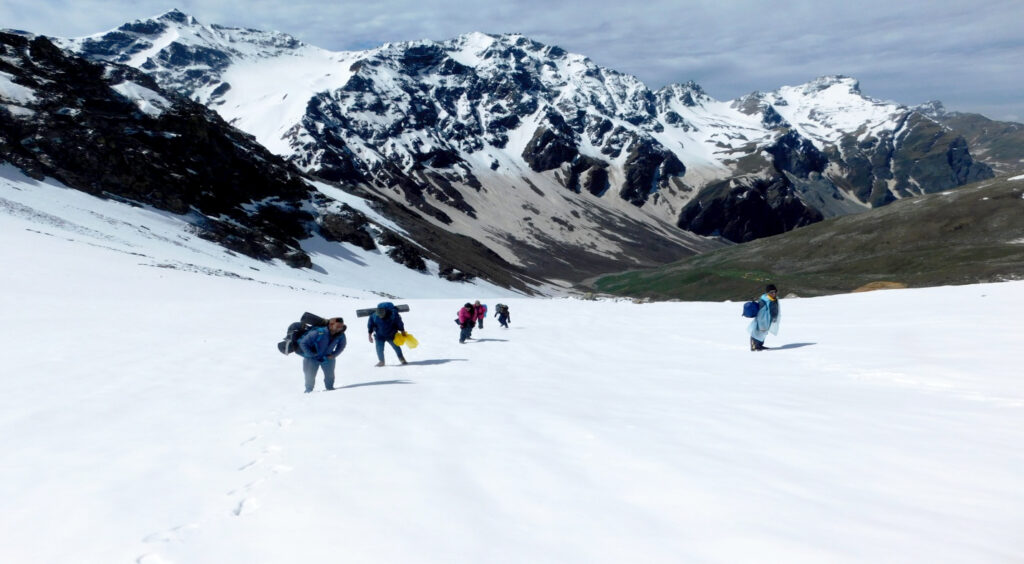
Unique Features of the Trek
The Buran Ghati Trek’s snow wall, a precipitous descent that calls for ropes and technical assistance, is one of its most remarkable features. This heart-pounding challenge is a trekker’s paradise because it is both exhilarating and rewarding.
Cultural Significance
Ancient villages like Janglik, where centuries-old customs and architecture provide a window into Himalayan heritage, are traversed during the trek.
Seasonal Appeal
Buran Ghati is a year-round wonder, whether it is covered in snow in the spring or is illuminated by an abundance of greenery during the monsoon.
3. Geographical and Climatic Conditions
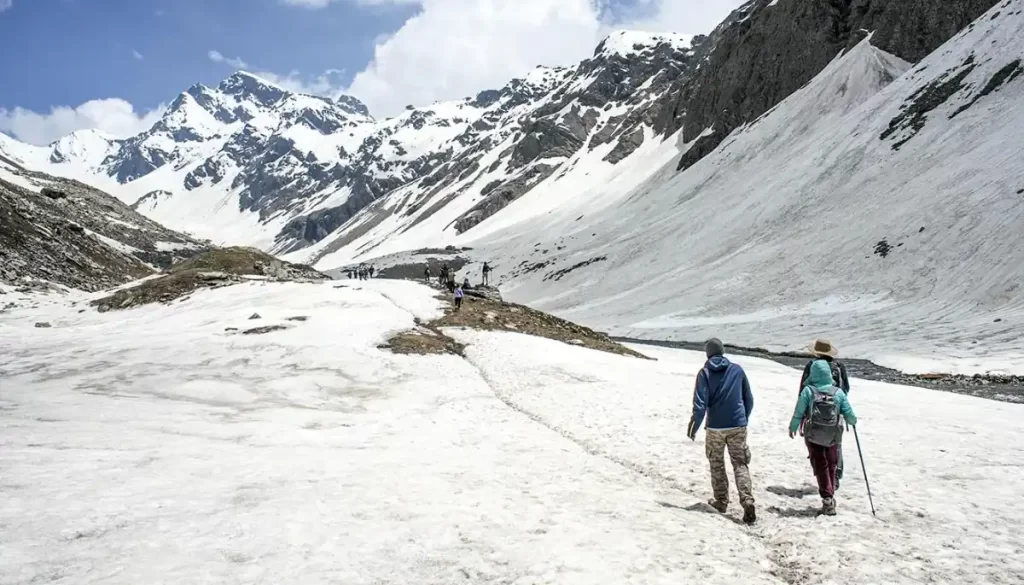
Buran Ghati is situated in the heart of the Himachal Pradesh region, connecting the Pabbar Valley to Kinnaur.
Topography and Elevation
With altitudes reaching up to 15,000 feet, the trek offers breathtaking views of snowy peaks and verdant valleys.
Weather Patterns
Winters bring a snowy wonderland, while summers bring clear skies and blossoming flora. May to June and September to October are the best months for trekking.
4. Preparations Before the Trek

Physical Fitness
Trekking at high altitudes requires stamina and strength. Prepare with regular cardio, strength training, and flexibility exercises.
Essential Gear
Pack appropriately: sturdy trekking boots, thermal layers, waterproof clothing, and a first-aid kit are non-negotiable.
5. Route and Detailed Itinerary
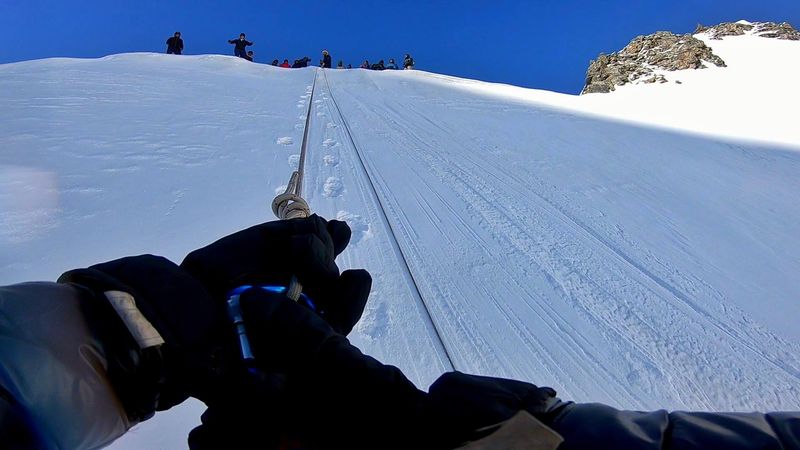
Day 1: Arrival in Shimla and Transfer to Janglik (Altitude: 9,200 ft)
Distance Covered: 150 km (6–7 hours by road)
Highlights: Scenic drive through Himachali countryside, traditional Janglik village
Shimla, the quaint capital of Himachal Pradesh, where you start your journey, is renowned for its busy bazaars and colonial architecture. You take a picturesque drive from Shimla to Janglik, the Buran Ghati Trek’s base village. The road meanders through charming mountain villages, thick pine forests, and picturesque valleys.
On reaching Janglik, you’ll be welcomed by the sight of wooden Himachali homes and terraced fields. The village exudes an old-world charm and provides a peaceful retreat to prepare for the trek. Spend the evening exploring the village, interacting with locals, and soaking in the serene atmosphere.
Accommodation: Homestay or campsite in Janglik
Meals: Dinner
Day 2: Trek from Janglik to Dayara Thach (Altitude: 11,075 ft)
Trekking Distance: 6 km
Time Taken: 5–6 hours
Trail Highlights: Dense forests, lush meadows, streams, and wooden bridges
The first trekking day starts with a gradual climb through rhododendron, oak, and pine forests. The trail is full of wildlife and plants, and as you ascend higher, you can hear birdsong. Stunning views of the Pabbar Valley are revealed as the thick forest gradually gives way to open grasslands.
You will reach Dayara Thach, a charming meadow encircled by snow-capped peaks, after a few hours of hiking. This campsite is ideal for taking in the breathtaking mountain scenery.
Accommodation: Tents at Dayara Thach
Meals: Breakfast, lunch, and dinner
Day 3: Trek from Dayara Thach to Litham (Altitude: 11,737 ft)
Trekking Distance: 7 km
Time Taken: 5–6 hours
Trail Highlights: Alpine meadows, streams, and views of Chandranahan waterfalls
You enter a more alpine area on the Litham trail, where breathtaking scenery can be seen at every turn. You’ll come across tiny streams and a broad perspective of the valley below as you walk. The view of the Chandranahan waterfalls tumbling down from the mountains is the day’s high point.
Litham, your campsite for the night, is located in a vast meadow at the base of towering snow-clad peaks.
Accommodation: Tents at Litham
Meals: Breakfast, lunch, and dinner
Day 4: Acclimatization Day at Litham (Altitude: 11,737 ft)
Activities: Exploration and rest
Trail Highlights: Visit Chandranahan Lake
You enter a more alpine area on the Litham trail, where breathtaking scenery can be seen at every turn. You’ll come across tiny streams and a broad perspective of the valley below as you walk. The view of the Chandranahan waterfalls tumbling down from the mountains is the day’s high point.
Use the rest of the day to relax, enjoy the pristine surroundings, and prepare mentally and physically for the challenging days ahead.
Accommodation: Tents at Litham
Meals: Breakfast, lunch, and dinner
Day 5: Trek from Litham to Dhunda (Altitude: 13,365 ft)
Trekking Distance: 5 km
Time Taken: 4–5 hours
Trail Highlights: Expansive views, rocky terrain, and snowfields
The journey to Dhunda transports you deeper into the untamed landscape of the Himalayas. As you climb, snow patches become more noticeable as the trail moves from meadows to rocky terrain.
Dhunda offers a magnificent vantage point to view the surrounding peaks and the Buran Ghati Pass. The chilly winds and snowfields make this campsite a stark yet beautiful contrast to the lush meadows of earlier days.
Accommodation: Tents at Dhunda
Meals: Breakfast, lunch, and dinner
Day 6: Crossing Buran Ghati Pass (Altitude: 15,000 ft) to River Campsite (Altitude: 12,000 ft)
Trekking Distance: 10 km
Time Taken: 9–10 hours
Trail Highlights: Thrilling snow wall descent, panoramic mountain views, and glacial terrain
This is the most challenging and exciting day of the trek. The day begins early with a steep climb to the Buran Ghati Pass. The ascent is strenuous but rewarding, offering 360-degree views of towering peaks and sprawling valleys.
The snow wall descent on the opposite side of the pass is the day’s high point. To safely traverse this exciting section, ropes and technical assistance are necessary. The trail descends to the river campsite after passing the snow wall, where you can spend the night in peaceful surroundings.
Accommodation: Tents at River Campsite
Meals: Breakfast, lunch, and dinner
Day 7: Trek to Barua Village (Altitude: 6,562 ft) and Departure
Trekking Distance: 6 km
Time Taken: 4–5 hours
Trail Highlights: Apple orchards, terraced fields, and traditional Himalayan villages
The trek’s last section involves a slow descent to Barua, a quaint village renowned for its apple orchards and terraced fields. As you travel through the village’s outskirts, you can catch a glimpse of local life along the picturesque trail.
At Barua, the trek officially ends. You can either stay overnight in the village or proceed to your next destination.
Accommodation: Departure from Barua (optional stay available)
Meals: Breakfast and lunch
6. Flora and Fauna on the Trek
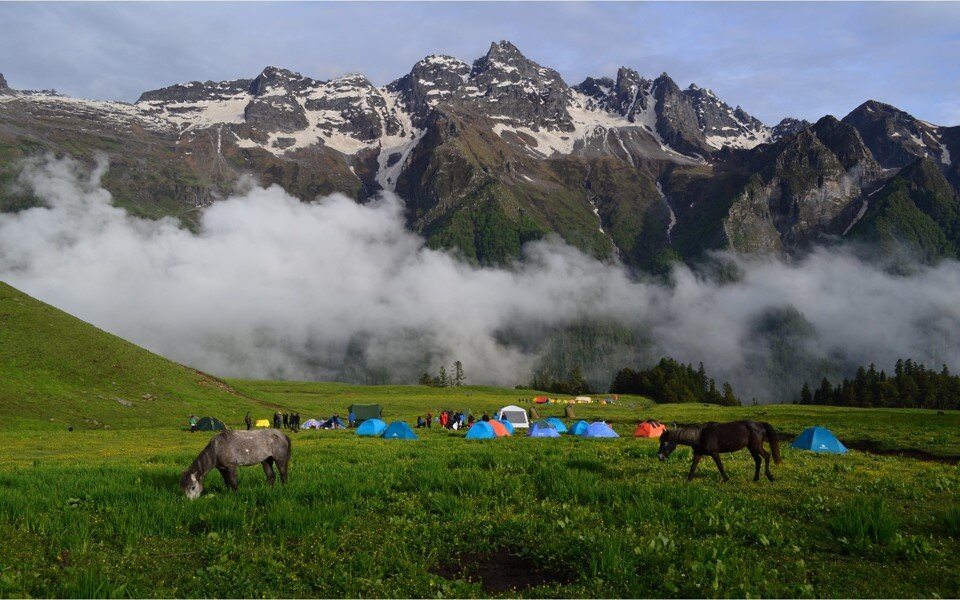
The walk passes through forests of oak and pine, with springtime wildflowers scattered throughout. Himalayan monals, bharals, and even the elusive snow leopard might be spotted.
7. Accommodation and Food
Expect camping under the stars in designated areas. Meals often include warm, hearty, local dishes like rajma-chawal and parathas.
8. Cultural Insights
The trek introduces you to Himachali hospitality in villages like Barua and Janglik. Stories of local deities and myths add a mystical touch.
9. Challenges and Safety Measures
Altitude sickness and slippery terrains are common hurdles. Carry necessary medications and trek with a certified guide for safety.
10. Environmental Conservation and Trekking Ethics
Practice responsible tourism by avoiding plastic waste and respecting local traditions. Leave nature as pristine as you found it.
11. Reviews and Testimonials
“The Buran Ghati Trek was life-changing. From lush meadows to the exhilarating snow wall, every moment was unforgettable.” – John D., UK
12. Comparison with Other Himalayan Treks
Unlike Roopkund or Hampta Pass, Buran Ghati offers a blend of cultural immersion and technical trekking, making it uniquely versatile.
13. How to Plan Your Trek with a Tour Operator
Choose experienced operators like Indiahikes or Trek The Himalayas. Look for packages that include guides, food, and medical support.
14. Conclusion and Call to Adventure
The Buran Ghati Trek is not just a journey; it’s a transformative adventure. Whether you’re a seasoned trekker or a first-timer, this trail promises memories that last a lifetime.
Pack your bags, lace up your boots, and let the Buran Ghati Trek become your story of courage and discovery!

